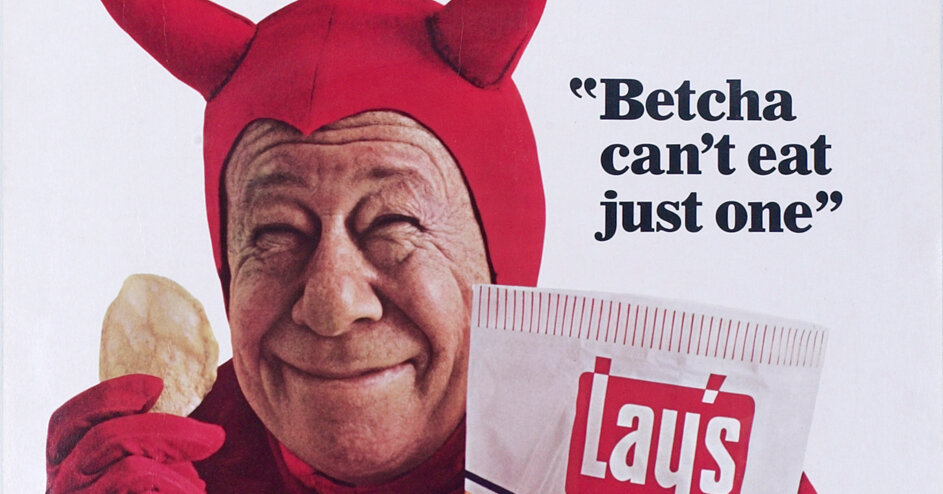
One day about 60 years ago, the comedian Bert Lahr put on a devil suit, held up a potato chip and uttered a phrase that would become a food-marketing milestone: “Betcha can’t eat just one.”
Positioning food as deliciously addictive, as Lay’s did in its sly TV commercial, became advertising gold. In the decades that followed, Oreos and freezer waffles (“L’eggo my Eggo!”) were portrayed as so irresistible that people fought over them. A popular stoner movie, “Harold and Kumar Go to White Castle,” chronicled two friends’ obsessions with fast-food sliders.
Craveability became such a selling point that Kellogg’s went all in and named a chocolate-filled cereal Krave. High-end chefs weren’t immune. Christina Tosi, known for the hyper-sweet desserts at her Milk Bar shops, named one of them Crack Pie.
But we’re now in the Ozempic era. A class of new drugs that eliminate food cravings, as well as a fresh body of scientific studies, have focused attention on the connection between addiction and food. Ultra-processed foods, made with cheap industrial ingredients and potentially as addictive as tobacco or gambling, are emerging as a national concern.



